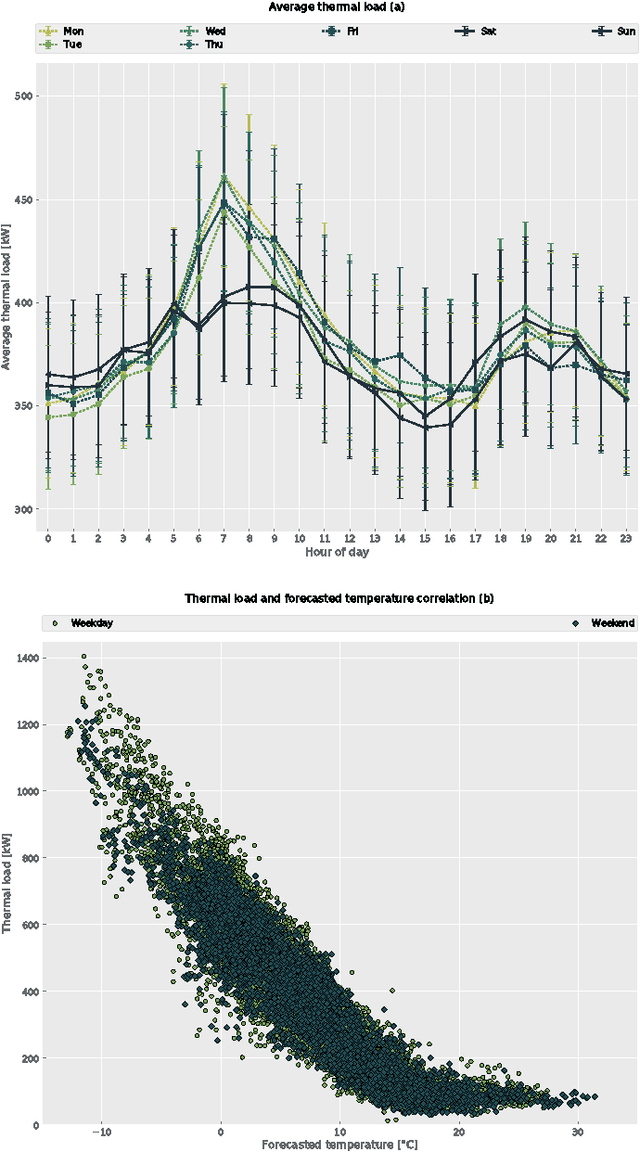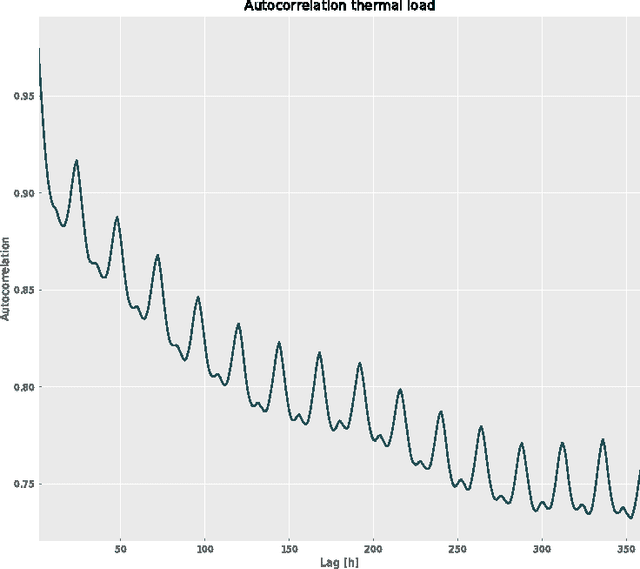Oscar De Somer
Operational thermal load forecasting in district heating networks using machine learning and expert advice
Oct 17, 2017



Abstract:Forecasting thermal load is a key component for the majority of optimization solutions for controlling district heating and cooling systems. Recent studies have analysed the results of a number of data-driven methods applied to thermal load forecasting, this paper presents the results of combining a collection of these individual methods in an expert system. The expert system will combine multiple thermal load forecasts in a way that it always tracks the best expert in the system. This solution is tested and validated using a thermal load dataset of 27 months obtained from 10 residential buildings located in Rottne, Sweden together with outdoor temperature information received from a weather forecast service. The expert system is composed of the following data-driven methods: linear regression, extremely randomized trees regression, feed-forward neural network and support vector machine. The results of the proposed solution are compared with the results of the individual methods.
Using Reinforcement Learning for Demand Response of Domestic Hot Water Buffers: a Real-Life Demonstration
Mar 16, 2017



Abstract:This paper demonstrates a data-driven control approach for demand response in real-life residential buildings. The objective is to optimally schedule the heating cycles of the Domestic Hot Water (DHW) buffer to maximize the self-consumption of the local photovoltaic (PV) production. A model-based reinforcement learning technique is used to tackle the underlying sequential decision-making problem. The proposed algorithm learns the stochastic occupant behavior, predicts the PV production and takes into account the dynamics of the system. A real-life experiment with six residential buildings is performed using this algorithm. The results show that the self-consumption of the PV production is significantly increased, compared to the default thermostat control.
 Add to Chrome
Add to Chrome Add to Firefox
Add to Firefox Add to Edge
Add to Edge